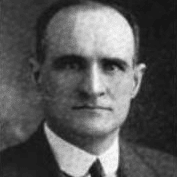Presidential Address
The Historian’s Part in a Changing World
In Memoriam
From the American Historical Review 74:3 (February 1969)
Charles Howard McIlwain (March 15, 1871–June 1, 1968), president of the American Historical Association during the year 1935, died June I, at the age of ninety-seven. He graduated from Princeton in 1894, was admitted to the bar in Pennsylvania in 1897, and received his PhD from Harvard in 1911. It took him some time to decide that he wanted to be a teacher, but after a brief experience at Miami University of Ohio, he was called to Princeton in 1905 as one of the remarkable group of young preceptors whom Woodrow Wilson was then recruiting. He went to Bowdoin in 1910 and moved to Harvard in 1911, where he taught as professor of history and government for thirty-five years. When Harvard reluctantly allowed him to retire at the age of seventy-five, his zest for teaching was still unabated, and he conducted graduate seminars at Princeton in 1948 and 1949· There would not be space, nor is there need, to list all the honors that he received: the Pulitzer Prize in 1923, the Festschrift dedicated to him in 1936, the Eastman professorship of history at Oxford in 1944, the long array of honorary degrees. These honors could only partially reflect the universal esteem in which he was held. As a scholar, he was unrivaled in the breadth of his knowledge and the freshness of his ideas. He led a whole generation of students of English constitutional history into new paths with his High Court of Parliament. He called attention to neglected aspects of the English relationship with the colonies in The American Revolution: A Constitutional Interpretation. He gave a new picture of the development of political theory in his Growth of Political Thought in the West and his Constitutionalism: Ancient and Modern. As a teacher, he had the rare ability to infuse his students with his own enthusiasm for constitutional history and political theory. There are many dull books and dull writers in these fields, but no books or writers ever seemed dull after McIlwain had explained their significance. As a man he was wise, patient, and kindly, quick to praise and slow to blame. Few members of our profession have been so greatly admired and so widely loved.
Bibliography
The high court of Parliament and its supremacy; an historical essay on the boundaries between legislation and adjudication in England, by Charles Howard McIlwain. New Haven: Yale University Press, 1910.
The political works of James I, reprinted from the edition of 1616; with an introduction by Charles Howard McIlwain. Cambridge: Harvard University Press, 1918; Reprint, New York: Russell & Russell, 1965, 1946.
Federalism as a democratic process, essays by Roscoe Pound, Charles H. McIlwain and Roy F. Nichols. New Brunswick: Rutgers University Press, 1942.
Constitutionalism, ancient and modern. Rev. ed. Ithaca: Cornell University Press, 1947.
The growth of political thought in the West, from the Greeks to the end of the Middle Ages. New York, Cooper Square Publishers, 1968, 1932.
Constitutionalism & the changing world; collected papers. Cambridge University Press, 1939. Reprinted 1969.
The American Revolution: a constitutional interpretation. New York, Da Capo Press, 1973, 1923.
